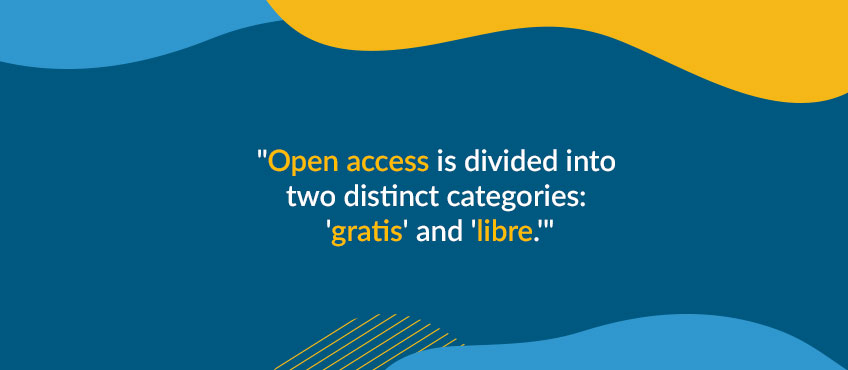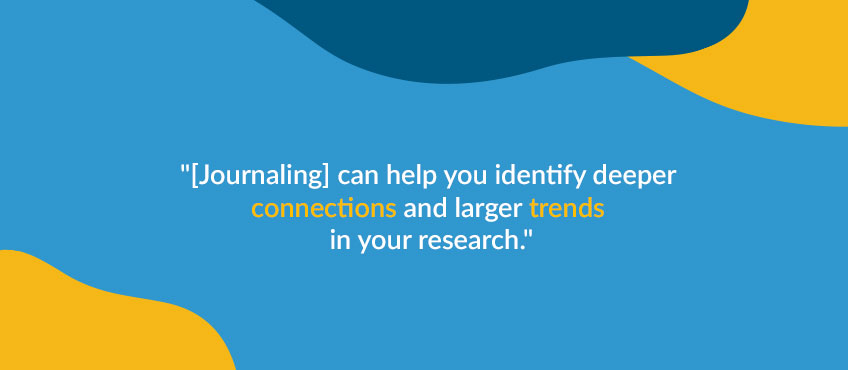Written by Emily Wilson
In the words of Nobel laureate Bob Dylan, "the times, they are a-changin'."
Unlike previous generations—who may have waited days, weeks, or even months for a vital piece of research to reach their desks—today's academics have a wealth of information at their fingertips. They only need two things: a stable internet connection and the knowledge of where to look.
That being said, online research comes with its own set of challenges, so we've collected our top research tips to help you overcome them. Read on to learn how to identify reliable sources, understand the nuances of open access, discover free academic journals and research databases, and manage your references.
Our most helpful online research tips
1. Learn how to find reliable sources
Before you actually begin your research, it's crucial to understand the difference between reliable and unreliable sources online. We take a deep dive into this topic (and outline four key considerations to help you determine a source's credibility) in our article titled How to Find Reliable Sources Online.
2. Understand open access
If you've already scrolled through a few research databases, it's likely that you've noticed the term "open access." In short, this term refers to the practice of making peer-reviewed scholarly research and literature freely accessible online. However, all is not as it seems with this easily misunderstood term.

It's important to know that open access is divided into two distinct categories: "gratis" and "libre." Understanding the difference between them is essential to helping you avoid unintentional copyright infringement. For example, while a reader might be able to access a gratis paper for free, they might also be forbidden from modifying, copying, or distributing that work.
On the other hand, a libre paper might grant the reader access under a Creative Commons license, which (depending on the type of Creative Commons license it is) may allow the reader to modify, copy, and distribute that particular work.
In our article "What Is Open Access?," we take an in-depth look at everything you need to know about open access, including its impact on academia and society at large.
3. Find free academic journals and research databases
Once you're confident in your ability to determine a source's credibility and have a solid grasp on open access, it's time to dig into your research.
It can take a long time to find trustworthy academic journals and research databases that align with your needs and also aren't guarded by expensive paywalls. Therefore, we've compiled a list of 101 free online academic journal and research databases to help you get started. Enjoy!
4. Save time with reference management programs
Once you've accumulated a bunch of resources, you'll be familiar with how much of a time sink it is to keep track of them all, especially if you aren't certain that they'll be incorporated into your final draft.
If you're searching for a more efficient way to keep track of everything, reference management programs can save you time and energy. There are many varieties, including those that work offline, online, from your browser, and from your desktop, so you can be certain to find one that suits your personal preferences. To give you a bit of a head start, we've investigated five different reference management programs and summarized our findings for you.
5. Use journaling to identify deeper connections
While the practice may not occur to you at first, journaling can be an incredibly helpful aid during your research journey. Recording your thoughts and impressions about the sources you find can help you identify deeper connections and larger trends in your research. It gives you the space you need to reflect on all that you've collected and helps prevent losing your references to shuffled notes or misremembered titles.

If you're already in the habit of journaling, consider creating a separate journal for your research. If not, considering giving the practice a try. We discuss the benefits of journaling in more detail here.
Parting advice
We've reached the end of our academic research tips; however, this is probably far from the end of your own research journey. Incorporate the above tips and tricks into your own toolbox to get the most out of your research hours.
Once you've finished your research and typed out your draft, consider submitting it to one of Scribendi's professional, academic editors for editing or proofreading. Scribendi's editors have helped thousands of academics achieve their goals, whether that entailed getting published or simply expressing ideas more clearly, and they're always happy to lend a helping hand.
Image source: dolgachov/envato.elements.com
A Good Editor Can Make All the Difference
Hire an Expert Academic Editor, or Get a Free Sample
About the Author

Emily has thrown caution to the wind and pursued a riotous, life-long love affair with English. Over the years, she's worked as an English teacher, an editor, and a copywriter and is now happily employed as Scribendi's junior content marketer. When she's not reading or writing, she's exploring the outdoors.









